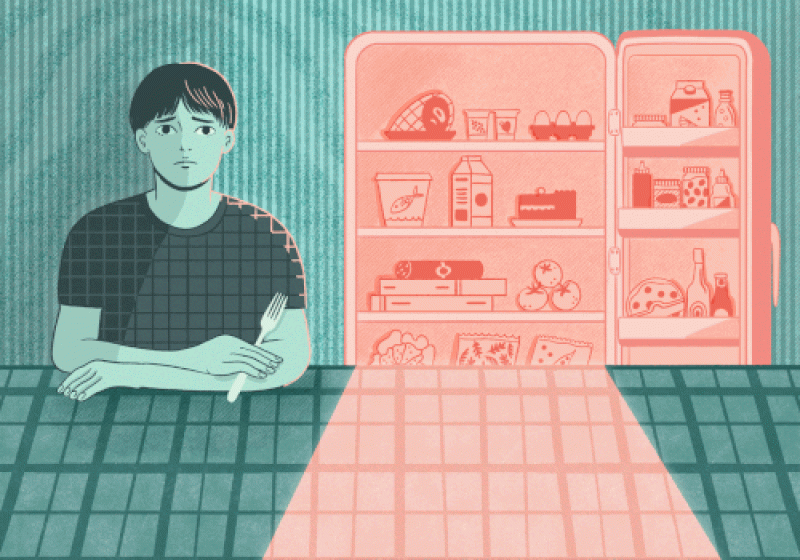Recent research indicates that pandemic-related stay-at-home orders have ramped up anorexia, bulimia and binge-eating disorder symptoms.
A study published last month in the International Journal of Eating Disorders revealed that during the first few months of the pandemic, many individuals with anorexia reported restricting their eating more. Meanwhile others with bulimia and binge-eating disorder reported more bingeing urges and episodes. Respondents also noted increased anxiety and concern about COVID-19’s impact on their mental health. More than one third of the 1,021 participants (511 in the U.S. and 510 in the Netherlands) said their eating disorder had worsened—and they attributed this change to issues such as a lack of structure, a triggering environment, the absence of social support and an inability to obtain foods that fit their meal plans.
“While no one knows for sure what causes eating disorders, a growing consensus suggests that [they result from] a range of biological, psychological and sociocultural factors,” says Claire Mysko, CEO of the National Eating Disorders Association, who was not involved in the study. She notes that many of those who struggle with these disorders have a co-occurring condition, such as anxiety or depression.
These disorders “also thrive in isolation, so it’s not surprising we’re seeing an increase in disordered behaviors and even some relapse among those who were doing well prior to lockdown,” says [psychiatry professor Ellen E.] Fitzsimmons-Craft.































